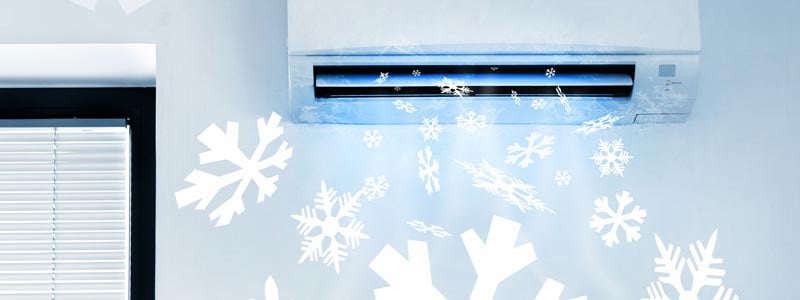Freezing out Women in the Workplace
I once watched a survival show on TV where the mountain man host had to spend the cold winter night in the woods. I watched as he showed viewers how to survive eight hours in the bitter cold. I struggled to see what was so special about his quest, considering any woman in the workplace faces a similar trial daily as they prepare for hours of freezing office temperatures.
Just as the survivalist prepared for the night with an arsenal of supplies, women brace themselves for the temperatures of the office with tools of their own. From her trusty office cardigan left hanging on the back of a chair to space heaters under desks, surviving a full eight hours in the arctic – I mean office – takes preparation to avoid a grisly fate of frostbite, hypothermia, and even death.
Ok, maybe I’m being a little dramatic. But, as I look around me in the office, I see women wearing coats and scarves in their cubicles, I hear the hum of space heaters, and I can’t help it but be grateful for the blanket wrapped around two blocks of ice, formally known as my feet.
I often hear the concerns women have about temperature in the office place written off with “Just wear more clothes.” But should women really be expected to wear their winter gear throughout the day just to be comfortable? When I pack for the day, why does it have to look more like I’m going on a ski trip instead of an office park?
Temperature Gender Bias
In 2015, a study was published in the Journal of Nature Climate Change, which found that most office thermostats are set using a formula that is based off the metabolic rates of men, not women or a combination of both. This is up to 35 percent higher than the metabolic rate for the average woman. Because women have a slower metabolic rate, they produce less heat than men.
So basically, thermostat formulas cater to men’s physiology alone, which wasn’t as big of a deal when offices had less women. However, now that there is a rise of women in tech, this formula is really leaving women out in the cold.
That’s right ladies, not only are you going to get paid less than your male counterparts, but you get to be cold while you do it. You can’t escape gender discrimination bias, even in the thermostat settings.
Temperature and Productivity
It’s not just a comfort thing. Studies show that feeling warm makes people more productive. A study conducted at Cornell found that raising the office temperature into the 70s reduces employee error by 44 percent and increases output by 150 percent.
A survey conducted in the UK found over 80 percent of survey respondents reported themselves as less happy and grumpier in the workplace when the office is cold. Twenty-six percent of workers surveyed reported to skipping work or calling in sick due to their workplace feeling too cold.
When I’m especially cold in the office, I find myself focusing more on raising my core temperature instead of my work. I type slower with cold fingers, I spend more time in the break room making hot drinks, and I pause more to hold my hands in front of the space heater.
Turning down the AC doesn’t just save money on the energy bill, it helps decrease the opportunity cost of cold workers working slowly due to the temperature, not to mention the HR repercussions of a possible reenactment of the Donner Party.
It may seem silly, but if office temperatures cater to males and uncomfortable office temperatures negatively impact productivity and job satisfaction, this has big ramifications toward women. The thermostat bias holds women back from working at peak productivity.
So maybe initially I just wrote this article as a passive aggressive note to our facilities team. But now I’m feeling quite heated about the subject (pun intended). Women of the workplace – shed your Snuggies of oppression and demand a livable office temperature, for the sake of your job performance.
And of course, follow @TheTechieGirls on Twitter. It will be sure to warm your heart in no time.
*Update: Because our UK facilities team is awesome, they fixed the office temperature the next day. Speaking up really does make a difference.


